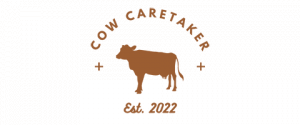Recombinant bovine growth hormone (rBGH) is a manufactured or synthetic hormone that dairy farmers use to increase milk production in cows. The Food and Drug Administration (FDA) approved rBGH in 1993, and the dairy industry has used it ever since.
It is illegal in Canada and throughout the European Union.
Table of Contents
What is Recombinant Bovine Growth Hormone (rBGH)?
Somatotropin, the growth hormone in human beings, is made in the pituitary gland. It is a peptide hormone that stimulates growth in all body tissue and bone, and encourages cell replication. Bovine growth hormone (BGH), also called bovine somatotropin (BST), is the natural form of this hormone in cattle.
Recombinant bovine growth hormone (rBGH) and recombinant bovine somatotropin (rBST) refer to bovine growth hormones created in a laboratory using genetic technology. Some rBGH products available on the market are only chemically different from a cow’s natural somatotropin by one amino acid.
The hormone’s natural and recombinant forms trigger a cow’s milk production by raising levels of another hormone called insulin-like growth factor-1 (IGF-1).
Health Concerns for Humans
There are two principal concerns about the potential health effects on humans of milk from cows injected with rBGH.
- These cows seem more prone to contracting udder infections, such as mastitis, so farmers treat them more frequently with antibiotic drugs. The question is whether these higher levels of antibiotics in the cow’s bloodstream will make their milk a concern to human health.
- It is also a matter of debate that milk from rBGH-treated cows contains residues of the hormone that raise human IGF-1 or growth hormone levels when consumed. If so, would this have a detrimental effect on humans, such as increasing the incidence of cancer risk, for example? This question has been the subject of several scientific reviews.
The FDA undertook research in the early 1990s into three questions regarding IGF-1 levels in milk from rBGH-treated cattle:
- How do the levels of IGF-1 the human body absorbs from treated milk compare to the amounts of IGF-1 already present in consumers?
- How much intact and active IGF-1 does the body absorb from the milk?
- Does untreated milk contain much lower levels of IGF-1 than milk from rBGH-injected cows?
No Evidence of Harm To Humans
The research reached the following conclusions:
- There is no evidence of natural or synthetic BGH causing any damage to growth hormone receptors in humans.
- In some cases, the concentrations of IGF-1 are a little higher in milk from cows injected with rBGH than in milk from untreated cows.
- Pasteurization does not neutralize IGF-1 in milk. How much intact and active IGF-1 the human digestive system absorbs is still not fully understood.
- The additional IGF-1 the human body absorbs after drinking milk from rBGH-treated cows makes up 0.09 percent of an adult’s average daily production of IGF-1.
- The FDA created a worst-case scenario of a young child drinking 3.2 pints of milk from rBGH-treated cows daily and absorbing the maximum amount of intact IGF-1 possible. Even in these exaggerated and highly improbable conditions, the milk would provide less than one percent of the infant’s average daily manufacture of IGF-1.
Health Risks For Dairy Cows
Several national and international bodies have reviewed research on possible health risks concerned with rBGH and humans or dairy cows. Some of the data highlights health problems in cattle, such as mastitis, hoof problems, and adverse skin reactions at the point of injection.
Some of the committees involved are:
- Health Canada
- The Joint FAO/WHO Expert Committee on Food Additives
- Canada Veterinarian Association
- Health Care Without Harm.
Current Usage in Cattle
The use of rBGH is still approved in the United States, although its demand has fallen recently. Many larger grocery store chains no longer sell milk from rBGH-injected cows. A USDA survey taken in 2007 found that only 17 percent of cows now receive rBGH injections. The American Nurses Association called for the removal of rBGH in dairy production as far back as 2008.
rBGH is barred in all 27 member states of the European Union, Australia, New Zealand, Japan, and Canada. Most of these countries have a blanket ban on all American milk.
The majority of consumers do not know that growth hormones are present in the milk, cheese, and yogurt that they buy. However, Trader Joe’s, Starbucks, and Whole Foods Market carry rBGH-free milk.
Codex Alimentarius, the U.N.’s food safety body, has twice concluded there that rBGH is not safe for human consumption.
Twenty countries are currently registered for the commercial sale of rbST. Chile in 2006 was the most recent country to join the list.
